Q10 supplements protect against chronic inflammation and oxidative stress
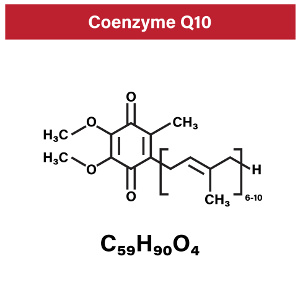 The body uses inflammation as part of its normal immune response to infections and tissue damage. If inflammation becomes chronic, however, it can be extremely dangerous. What happens is that it bombards the body with free radicals. This leads to oxidative stress and increases the risk of cell damage, overweight, and chronic diseases like type 2 diabetes, cardiovascular disease, autoimmune diseases, and different cancer forms. Diet and lifestyle play a major role, and according to a meta-analysis published in Frontiers in Pharmacology, Q10 supplementation can lower several markers of inflammation and oxidative stress.
The body uses inflammation as part of its normal immune response to infections and tissue damage. If inflammation becomes chronic, however, it can be extremely dangerous. What happens is that it bombards the body with free radicals. This leads to oxidative stress and increases the risk of cell damage, overweight, and chronic diseases like type 2 diabetes, cardiovascular disease, autoimmune diseases, and different cancer forms. Diet and lifestyle play a major role, and according to a meta-analysis published in Frontiers in Pharmacology, Q10 supplementation can lower several markers of inflammation and oxidative stress.



 Kidney stones is a painful and quite common problem. The diet plays a major role and according to a large American population study published in Nutrients, selenium may help prevent the condition. The authors mention that selenium-containing proteins and antioxidants have preventative mechanisms and due to the widespread problems with selenium-depleted farmland, they say that selenium supplementation may be a good way to prevent and manage kidney stones and other pathological changes.
Kidney stones is a painful and quite common problem. The diet plays a major role and according to a large American population study published in Nutrients, selenium may help prevent the condition. The authors mention that selenium-containing proteins and antioxidants have preventative mechanisms and due to the widespread problems with selenium-depleted farmland, they say that selenium supplementation may be a good way to prevent and manage kidney stones and other pathological changes.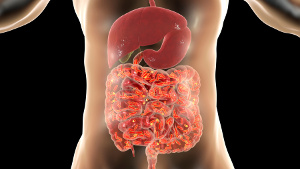 Selenium is an essential trace element of vital importance to our general health. The nutrient is also important for our gut flora, and being selenium-deficient may increase the risk of irritable bowel syndrome, inflammatory gut diseases like Crohn’s disease and ulcerous colitis, and even bowel cancer. Our intestine is also called our “third brain” because both our gut flora and digestion have a significant influence on our mental well-being, according to a review article published in Frontiers in Nutrition. The authors focus on selenium because selenium deficiencies are common in China, Europe, and many other places, and supplementation may be necessary.
Selenium is an essential trace element of vital importance to our general health. The nutrient is also important for our gut flora, and being selenium-deficient may increase the risk of irritable bowel syndrome, inflammatory gut diseases like Crohn’s disease and ulcerous colitis, and even bowel cancer. Our intestine is also called our “third brain” because both our gut flora and digestion have a significant influence on our mental well-being, according to a review article published in Frontiers in Nutrition. The authors focus on selenium because selenium deficiencies are common in China, Europe, and many other places, and supplementation may be necessary.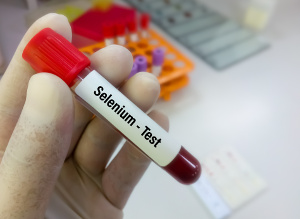 Both physical traumas and critical illnesses are associated with inflammation and oxidative stress where free radicals can cause potentially life-threatening damage to cells and tissues. Traumas are estimated to be the cause of one in ten deaths. New research suggests that early intervention with selenium may shorten the hospital stay including the days spent in intensive care and reduce total mortality. This was shown in a study published in Frontiers in Nutrition where the researchers looked closer at selenium’s unique antioxidant properties and anti-inflammatory effect.
Both physical traumas and critical illnesses are associated with inflammation and oxidative stress where free radicals can cause potentially life-threatening damage to cells and tissues. Traumas are estimated to be the cause of one in ten deaths. New research suggests that early intervention with selenium may shorten the hospital stay including the days spent in intensive care and reduce total mortality. This was shown in a study published in Frontiers in Nutrition where the researchers looked closer at selenium’s unique antioxidant properties and anti-inflammatory effect.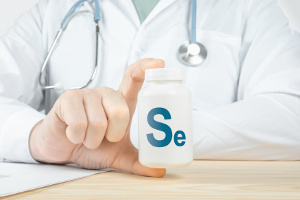 The brain is particularly vulnerable towards oxidative stress and local inflammation that can set the stage for Alzheimer’s disease and other neurological conditions. However, it turns out that certain selenium-containing antioxidants are able to protect the brain neurons against damage. Also, selenium supplements can improve cognitive performance in patients suffering from mild cognitive impairment and Alzheimer’s disease, according to a meta-analysis that is published in Nutrients.
The brain is particularly vulnerable towards oxidative stress and local inflammation that can set the stage for Alzheimer’s disease and other neurological conditions. However, it turns out that certain selenium-containing antioxidants are able to protect the brain neurons against damage. Also, selenium supplements can improve cognitive performance in patients suffering from mild cognitive impairment and Alzheimer’s disease, according to a meta-analysis that is published in Nutrients.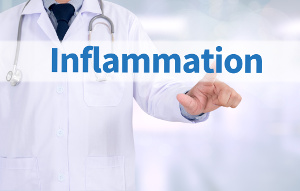 Q10 is a popular supplement for boosting energy levels and supporting circulatory health. According to a new meta-analysis that is published in Molecular Nutrition Food Research, the compound is also able to inhibit inflammation, which is the common thread in most chronic diseases. This requires sufficiently high doses of the compound, and it is also important to take high-quality supplements with documented absorption.
Q10 is a popular supplement for boosting energy levels and supporting circulatory health. According to a new meta-analysis that is published in Molecular Nutrition Food Research, the compound is also able to inhibit inflammation, which is the common thread in most chronic diseases. This requires sufficiently high doses of the compound, and it is also important to take high-quality supplements with documented absorption. Yes, according to a new study published in Free Radical Biology & Medicine, lack of selenium lowers the kidneys’ sodium excretion via different mechanisms, and that leads to elevated blood pressure. The study results are highly relevant because hypertension and subsequent premature death is a growing global problem. Selenium deficiency is also a widespread problem. One billion people worldwide are believed to be lack this essential nutrient, primarily because of the selenium-depleted agricultural soil in large parts of China, Europe, and other places.
Yes, according to a new study published in Free Radical Biology & Medicine, lack of selenium lowers the kidneys’ sodium excretion via different mechanisms, and that leads to elevated blood pressure. The study results are highly relevant because hypertension and subsequent premature death is a growing global problem. Selenium deficiency is also a widespread problem. One billion people worldwide are believed to be lack this essential nutrient, primarily because of the selenium-depleted agricultural soil in large parts of China, Europe, and other places. Selenium is an essential trace element that affects the rate and development of several cancer types, including cervical cancer that is one of the most common cancer forms. Cervical cancer is often treated with a combination of radiation and chemotherapy and the side effects are known to affect the bone marrow and the formation of blood platelets and blood cells. However, supplementation with selenium yeast appears to counteract these adverse effects without interfering with the treatment, according to a study that is published in Frontiers in Nutrition.
Selenium is an essential trace element that affects the rate and development of several cancer types, including cervical cancer that is one of the most common cancer forms. Cervical cancer is often treated with a combination of radiation and chemotherapy and the side effects are known to affect the bone marrow and the formation of blood platelets and blood cells. However, supplementation with selenium yeast appears to counteract these adverse effects without interfering with the treatment, according to a study that is published in Frontiers in Nutrition.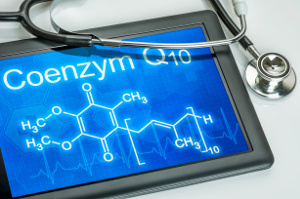 Neurological disorders such as Alzheimer’s disease, dementia, depression, Parkinson’s disease, stroke, migraine, and fibromyalgia are rather common. These conditions are a result of imbalances in the nervous system, and they are often insidious. In a new review article that is published in Frontiers in Neuroscience, researchers have studied Q10’s role in the different neurological disorders. The reason for this is that Q10 is important for cellular energy turnover and serves as an antioxidant that protects the circulatory system and the nerve cells against oxidative damage. As we grow older, our endogenous Q10 synthesis decreases, and certain diseases and medical drugs also impair the body’s Q10 synthesis.
Neurological disorders such as Alzheimer’s disease, dementia, depression, Parkinson’s disease, stroke, migraine, and fibromyalgia are rather common. These conditions are a result of imbalances in the nervous system, and they are often insidious. In a new review article that is published in Frontiers in Neuroscience, researchers have studied Q10’s role in the different neurological disorders. The reason for this is that Q10 is important for cellular energy turnover and serves as an antioxidant that protects the circulatory system and the nerve cells against oxidative damage. As we grow older, our endogenous Q10 synthesis decreases, and certain diseases and medical drugs also impair the body’s Q10 synthesis.